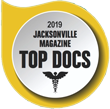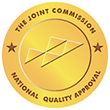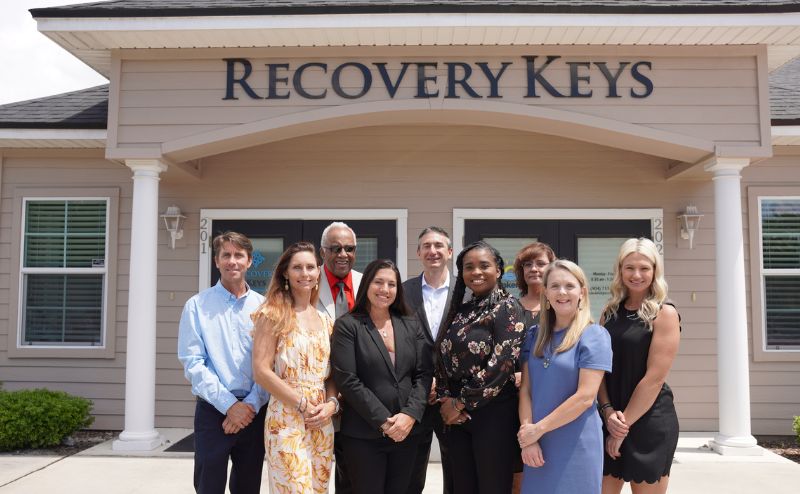We hear it from our alumni all the time. Recovery is life. Recovery is health.
To overcome drug and alcohol addictions, admitting you have a problem and seeking help are crucial, and courageous, first steps. From there, the healing process can continue with detoxification.
Detox is a process during which the body cleanses itself of harmful substances including alcohol, benzodiazepines such as Xanax or Valium, methamphetamines, cocaine and marijuana. Our treatment team also offers detox for opioid prescription pain medications such as Vicodin, oxycodone, hydrocodone, OxyContin, Percocet, Dilaudid and fentanyl, as well as opioids that are sold illegally, such as heroin.
Our team of board-certified physicians, therapists and licensed dependency counselors strives to make detox a gentle, comfortable and compassionate process. Our Joint Commission-accredited substance abuse treatment program offers medications to relieve withdrawal symptoms and holistic strategies to minimize discomfort and relieve stress.
Each patient’s detox process is treated individually, according to patient needs and preferences. During drug and alcohol rehab at our treatment centers patients can remain confident in our commitment to providing the emotional support that patients need to successfully get sober and embark on a journey of healing free from drug and alcohol dependencies.
Rehabilitation for Drug Abuse, Alcoholism and Pain Medication Dependencies
 Many of those struggling with substance abuse have significant fear about suffering through the physical symptoms of withdrawal. There is also a psychological component. Many people with chemical dependencies question their ability to live without the substances they have become dependent on.
Many of those struggling with substance abuse have significant fear about suffering through the physical symptoms of withdrawal. There is also a psychological component. Many people with chemical dependencies question their ability to live without the substances they have become dependent on.
And because of the incredible power of alcohol and drugs to change the way that our brains are wired, many people also struggle to tell the difference between their desire to be alcohol and drug free, and the feeling that maybe they don’t really want to give up alcohol and drugs. Even though that negative voice is the alcohol and drugs talking, it can be hard to quiet it and push forward on getting sober.
At our rehabilitation treatment center, we understand the fear and anxiety that can accompany detoxification – or any big change we make in life.
Is Detoxification Safe?
Detox at our rehab centers is closely supervised by board-certified physicians who specialize in substance abuse to ensure safety and patient comfort.
Our treatment services are offered by caring and highly trained therapists and counselors available to support each of our patients. Some of our chemical dependency counselors and recovery therapists have undergone their own detox and alcohol and drug rehabilitation process. Many years into their own successful recovery, they truly understand what it means to walk in our patient’s shoes. They have dedicated their lives to helping others achieve sobriety, are there to offer encouragement, inspiration and insights that help patients achieve their own sobriety and long-lasting recovery.
How Long Does Detoxification Take?
Before embarking on detox, our team, led by Dr. Jeremy Mirabile, MD, a physician who is board certified in substance abuse and family medicine, carefully and thoroughly assesses the health of each patient. During our comprehensive substance dependency evaluation, areas reviewed by our treatment team of doctors and chemical dependency counselors include the substance use disorder, co-occurring mental health conditions and the patient’s overall physical condition, including an assessment of chronic medical conditions that contributed to the addiction or have been made worse by substance abuse.Initial detoxification may take anywhere from a couple of days to a couple of weeks, depending on the type of drug and the level of addiction. During that time, patients may be prescribed medications that significantly relieve physical withdrawal symptoms and reduce cravings. Medications may include:
- Suboxone (buprenorphine)
- Vivitrol (naltrexone)
- Librium
- Campral (acamprosate)
- Neurontin (gabapentin)
- Clonidine
- Vistaril (hydroxyzine)
We use those medications as needed, and to the extent desired by the patient and indicated by their condition, to allow patients to focus on their recovery. The goal is to eventually wean patients off of scheduled medications if possible, through a careful tapering process, allowing them to live a drug-free life.
Is Partial Hospitalization or Intensive Outpatient Treatment Recommended After Detoxification?
While detoxification is a very important step, it is only the first part of the recovery journey. Just like drug and alcohol use don’t immediately become addictions, recovery from drug or alcohol addiction also takes time.
Substance abuse can change the way the brain functions, altering the way you think, your sense of self and the way you relate to those around you. Detoxification should be followed by chemical dependency counseling and treatment, such as our Day Treatment/Partial Hospital Program or Intensive Outpatient Treatment Program. Through these rehabilitation programs, individuals get at the root causes of their dependencies and learn new strategies for dealing with life’s challenges. In the Day Treatment/Partial Hospital Program and Intensive Outpatient Treatment Program, patients:
- Gain insights into the core issues that drive self-destructive behavior.
- Work through past issues and trauma.
- Regain a sense of balance and confidence.
- Learn new ways to communicate and to cope.
- Unlock the potential of their new, sober life.
To learn more about Detox (Drug and Alcohol) call Recovery Keys at (904) 551-1394 today or schedule an evaluation now.



















